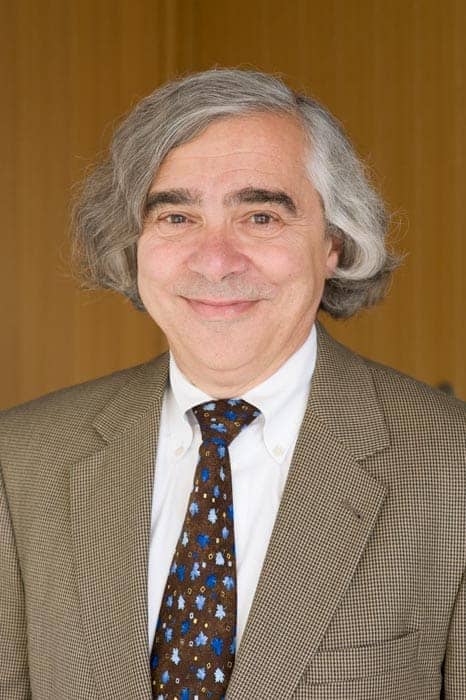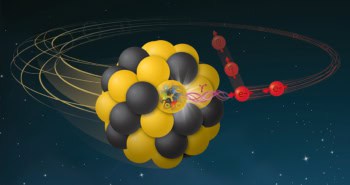
President Obama has nominated Ernest Moniz, a physicist at the Massachusetts Institute of Technology (MIT), to succeed Nobel laureate Steven Chu as US energy secretary. If the Senate approves the nomination, Moniz will assume the top position in the US Department of Energy (DOE), where the responsibilities range from the country’s stockpile of nuclear weapons to funding national laboratories to supporting energy-efficiency programmes. “Most importantly,” the president said in his announcement, “Ernie knows that we can produce more energy and grow our economy while still taking care of our air, our water and our climate.”
Moniz, 68, received a BSc in physics from Boston College in 1966 before being awarded a PhD in theoretical physics from Stanford University in 1972. He then joined MIT a year later, serving as head of the department from 1991 to 1995.
Unlike Chu when he took over the role of US energy secretary four years ago, Moniz has direct experience of Washington. Under the administration of Bill Clinton, he served as associate director for science in the Office of Science and Technology Policy from 1995 to 1997 and spent the next four years as under-secretary of energy in the DOE. “Physics sometimes looked easy compared to doing the people’s business,” he noted about his role in office in an interview in 2009 with Boston College. Moniz then returned to MIT and in 2006 became the first director of the MIT Energy Initiative.
Broad experience
Moniz’s colleagues at MIT have applauded his nomination. “He has shown a remarkable ability to discern how best to bring groundbreaking research to bear on both immediate and longer-term energy problems,” says former MIT president Susan Hockfield, who chose Moniz to start up the Energy Initiative. That view is shared by Michael Lubell, the American Physical Society’s public affairs director and professor of physics at the City College of New York. “He is very, very broad in his knowledge of science and energy,” he says.
However, some environmentalists have expressed suspicion of Moniz, because of his stated support for nuclear power and the use of natural gas as a bridge to a future energy economy based on renewables. Nevertheless, colleagues regard him as more prepared for the cut and thrust of Washington politics than his predecessor. “He’s a politically savvy guy, and as a result of his time in Washington he understands Washington reasonably well,” Lubell adds. “He has a much more natural grasp of politics than Chu ever had, even to this day; his instincts are better.”
A tough test to come
Assuming that Moniz wins Senate approval in the coming weeks, he will face a far tougher financial situation than Chu, who was able to use stimulus funds to start new initiatives. Now, the DOE has to retrench under the terms of the “sequester” that, when it went into action only a few days ago, cut significant funds from all cabinet departments.
At the MIT Energy Initiative, Moniz focused on transforming the energy mix, with particular reference to renewable energy technology, which many Republicans in Congress regard with suspicion, if not contempt. But Moniz has also insisted that non-renewables must remain part of the energy portfolio for several years until they become “too carbon-intensive”. Natural gas “is part of our solution, at least for some time,” he told a meeting at the University of Texas, Austin in December.
And in testimony about a recent MIT Energy Initiative report into the controversial process of fracking, which involves pumping sand and liquid into deep shale deposits to liberate natural gas, he spoke out against banning the method, calling instead for better regulation and oversight. That has drawn the ire of some environmentalists, who regard fracking as anathema. Critics have also expressed suspicion about the financial support that the Energy Initiative receives from fossil-fuel interests. Significantly, though, the DOE has no ability to oversee fracking. That authority belongs to the Environmental Protection Agency (EPA).
Along with the selection of Moniz, President Obama yesterday nominated Gina McCarthy to head the EPA. Currently the agency’s assistant EPA administrator, McCarthy, 58, arrived in Washington in 2009, following stints as an environmental official in Massachusetts and Connecticut. When the Senate will consider both nominations is currently unknown.



